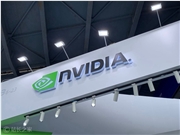Doug LeFevre, CEO of Advantest, the world's largest supplier of chip testing equipment, stated that if investment in data centers slows down, the demand for AI smartphones may help certain areas of the semiconductor industry avoid a "severe" recession.
LeFevre mentioned that he is closely monitoring whether spending by major US tech companies in the AI sector is slowing down. Meta, Google, and Microsoft have been major investors in data centers that provide significant computing power.
LeFevre noted that a slowdown in data center construction "may not last too long and could recover, but due to the current high concentration of [hyperscale enterprises] in the market, any slowdown in data center construction will have a huge impact on the supply chain."

He warned, "I don't like to use the word bubble because it implies it will disappear, but cycles will occur." He added, "When the next cycle comes... it could be very severe."
In contrast, LeFevre said that demand for AI smartphones is "a bit slow," but it could take off rapidly. "Everyone is holding their breath, waiting for the killer app for AI phones... If that happens and people start replacing their phones, it will be crazy."
Tokyo-based Advantest is a key testing equipment supplier for Nvidia's high-end graphics processing units and one of the biggest beneficiaries of the rapid growth in semiconductor demand. The company controls over half of the semiconductor testing market, and as chips become more advanced and expensive, the demand for its services has surged.
This dominance has seen its stock price rise by more than 80% over the past year and about 500% over five years. The recent drop in December was attributed to concerns that incoming President Donald Trump would take a tougher stance on China.
Although Japan has lost its leading position in chip production since the 1980s, Advantest is part of a cluster of Japanese semiconductor equipment and materials companies that dominate niche but essential segments of the supply chain.
LeFevre stated that a complete advanced chip may now be tested by Advantest's machines 10 to 20 times, from wafer cutting to final assembly. Five years ago, this number was in the single digits.
Testing times have also increased, with testing for Nvidia's latest Blackwell products taking three to four times longer than for previous generations. This has given Advantest confidence to raise its net profit target for fiscal year 2024 by 16% to 122 billion yen (approximately $792 million) in October.
The trend of growing demand for Advantest machines (each worth $1 million and containing more parts than a commercial airplane) is unlikely to weaken anytime soon. According to analysts, the company focuses on high-performance testing, holding over 60% market share in certain categories.
The company operates in 18 countries, but still derives 20% to 25% of its revenue from China. LeFevre expressed satisfaction with this level, despite a recent decline.
The company has not been directly affected by US restrictions aimed at limiting China's ability to produce advanced technologies, partly because sanctions often target the capability to manufacture the chips themselves.
LeFevre expects that even if China is completely excluded, demand elsewhere will be sufficient to offset the losses. He mentioned that when a large Chinese company was recently sanctioned, other customers quickly made up for the lost sales. "We thought it might take a year, but it turned out to be just a few months," he said. "That’s remarkable."










